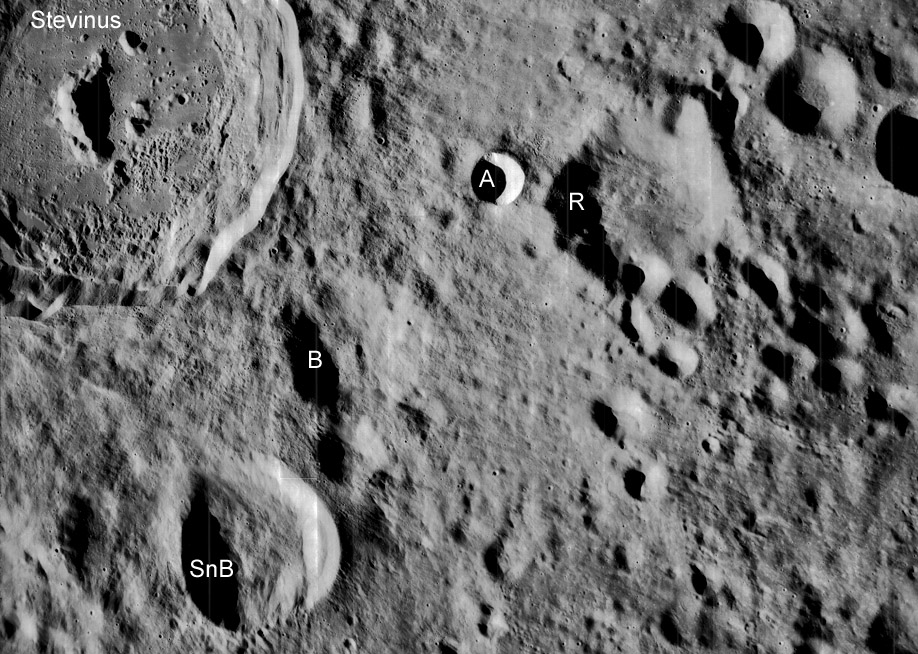
lunar orbiter V-5040 image ["" ]
Here is a gem of an image that has largely gone unseem for the last 40 years. Because the first three Lunar Orbiters had successfully imaged potential landing sites for Apollo, Orbiter IV was set to map the entire near side, and the cameras on Lunar Orbiter V were aimed strickly at science targets. This image is one that I had overlooked until recently. At top left is the relatively young, 75 km wide Stevinus. This view is reduced to 20% of the size of the awesome original but still shows many fascinating features. The floor is covered by impact melt, and some can be seen as smooth ponds trapped up on terraces at the bottom left of the crater wall. On the full resolution view small rilles are visible in the melt, and there are hills that may have fractured into pieces when they fell back into the crater as ejecta. There are also many small, smooth, quasi-hemispherical hills that are odd. The ejecta outside the crater probably fell onto the surface but some certainly flowed as surges across the ground. Notice how a lobe of ejecta flowed across the floor of Snellius B (SnB), whereas the east and west walls look relatively uneffected. Stevinus B was covered by a thicker veneer of ejecta, aging it instantly; do you see the hint of its coated central peak. Look closely west to see a wide patch of delicately striated ejecta reaching nearly to the bottom right corner. Another fascinating crater is Stevinus A. It is obviously younger than Stevinus, but otherwise seems a typical little crater. But under high illumination Stevinus A is very bright and has a longer ray system than would be expected for a crater only 8 km in diameter; perhaps the lengthy rays are related to it being an oblique impact.
Yesterday's LPOD: Google Moon
Tomorrow's LPOD: Blue Moon in the Daytime Sky
COMMENTS?
Register, Log in, and join in the comments.



